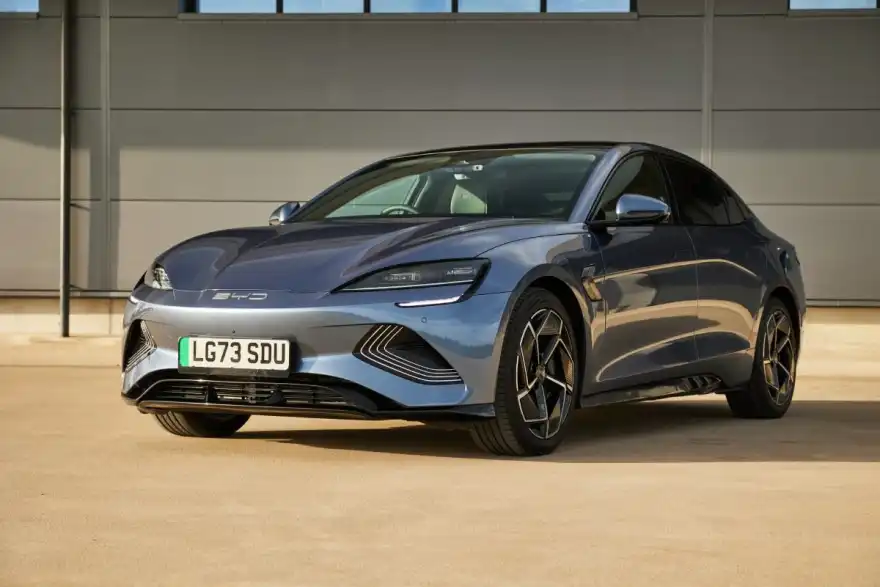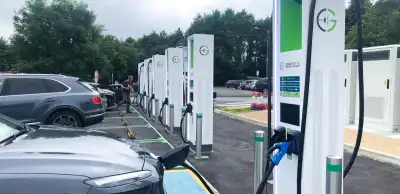
Accusations have surfaced that China is selling electric cars at artificially low prices, prompting the European Union to consider imposing tariffs this week.
The BYD Seagull is a small, affordable electric vehicle (EV). It’s a practical city car, not designed for speed but highly economical. In China, it starts at 69,800 yuan (£7,500). If it reaches Europe, safety regulations could double its price, but it would still be relatively cheap for an electric car.
This situation worries European carmakers. They fear that the Seagull and other Chinese models could flood their markets, threatening local manufacturers.
China’s auto industry has grown rapidly over the past 20 years, bolstered by the “Made In China 2025” strategy, which includes significant development in the battery sector. Companies like BYD are now competing with Tesla for the top spot in global EV manufacturing. Established brands like SAIC and Geely have also become major players.
In 2023, China sold over eight million electric vehicles, representing about 60% of global sales, according to the International Energy Agency. However, European and US policymakers are concerned. They fear that their domestic companies can't compete with Chinese firms, which benefit from large subsidies that keep prices low.
A UBS report from September highlighted that Chinese companies like BYD can produce cars at 25% lower costs than the best global manufacturers, allowing them to potentially dominate the global market with affordable, high-tech EVs.The Alliance for American Manufacturing warned that cheap Chinese cars could devastate the US auto industry, calling for urgent measures to counter these imports.
The Biden administration responded by increasing tariffs on Chinese battery-powered cars from 25% to 100%, aiming to protect the domestic market. This move is part of a broader strategy criticized by Beijing as protectionist. Simultaneously, the US is subsidizing its own car industry through tax incentives.
The EU, while maintaining a strong stance, seems to prefer a moderate approach. European Commission President Ursula von der Leyen announced an investigation into Chinese EV imports last year, citing concerns over state subsidies distorting the market. The EU is expected to raise duties on Chinese EVs from 10% to between 20% and 25%.
According to Matthias Schmidt of Schmidt Automotive Research, this would be a rather more proportionate response than the US move.
“The 100% tariff is just pure protectionism, regressive and stifles innovation, and prevents a competitive landscape for the consumer," he says.
“If the EU imposes tariffs of no more than 25%, it will be more about levelling the playing field, and evening out the 30% cost advantage Chinese manufacturers have."
However, these tariffs could also affect European companies. For instance, BMW’s iX3 electric SUV, manufactured in China, would face higher costs. Tesla, which builds cars in Shanghai for European markets, would also be impacted.
European carmakers have expressed concerns about potential Chinese retaliation, which could target high-value European exports to China.
Earlier this year, Volkswagen Group’s chief executive Oliver Blume warned that the introduction of tariffs was “potentially dangerous”, because of the risk of retaliation.
BMW boss Oliver Zipse told investors “you could very quickly shoot yourself in the foot” by engaging in trade battles, adding “we don’t think that our industry needs protection”.
Support for EU tariffs mainly comes from France, but even there, opinions are mixed. Carlos Tavares, head of the Stellantis group which includes Peugeot, Citroen, Vauxhall/Opel and DS, has described them as “a major trap for countries that go down that path”.
He has warned that European carmakers are in a "Darwinian" struggle with their Chinese rivals, something that is likely to have social consequences as they pare back costs in an effort to compete.
The UK is watching closely, with the Trade Remedies Authority ready to investigate Chinese EVs if requested by the government or industry. However, no such request has been made yet.
Higher tariffs might buy Europe some time to adapt to the Chinese challenge. Still, many in the industry agree that Europe needs more than just tariffs to stay competitive in the global automotive market.
Let us know if you think this is the right decision.



